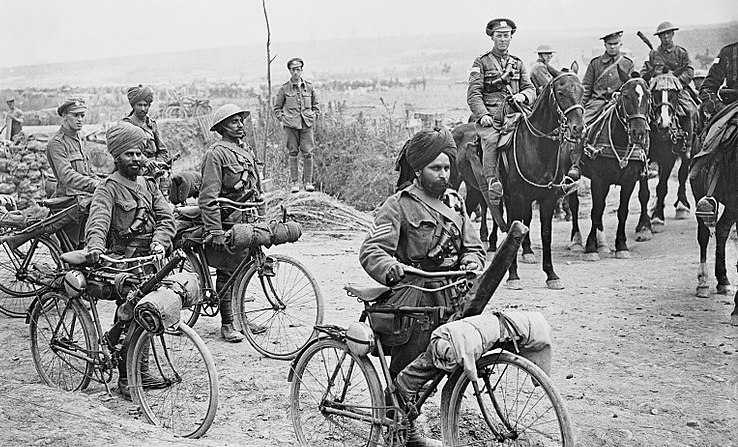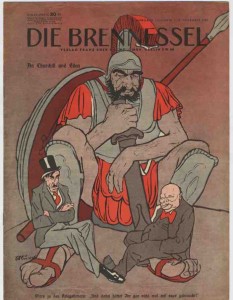
Winston Churchill on War, Part 1: 1900-1932
What he said about war
When he entered Parliament, Churchill held experience in war on three continents. He spoke authoritatively of the frightfulness of modern warfare. He strove, according to his lights, sometimes with questionable tactics, and unconventional proposals, to avoid it.
Churchill’s reputation as a warrior tends to obscure his efforts for peace. Of peace he sometimes despaired, especially toward the end of his life. Herewith some of Churchill’s words on war and peace from Churchill by Himself. Part 3 will consider why he regretted, in his final years, that peace still did not prevail in the world.
1900-1909
Ah, horrible war, amazing medley of the glorious and the squalid, the pitiful and the sublime, if modern men of light and leading saw your face closer, simple folk would see it hardly ever. —1900, London to Ladysmith via Pretoria
We must not regard war with a modern Power as a kind of game…. A European war cannot be anything but a cruel, heartrending struggle [ending] in the ruin of the vanquished and the scarcely less fatal commercial dislocation and exhaustion of the conquerors. —1901, 13 May, House of Commons (hereinafter “HC”)
War never pays its dividends in cash on the money it costs. —1901, 17 July, HC
Much as war attracts me & fascinates my mind with its tremendous situations—I feel more deeply every year—& can measure the feeling here in the midst of arms—what vile & wicked folly & barbarism it all is.” —1909, 15 December, to his wife, while observing German army maneuvers
[In 1913] Germany will build three capital ships, and it will be necessary for us to build five in consequence. Supposing we were both to take a holiday for that year. Supposing we both introduced a blank page in the book of misunderstanding…. As to the indirect results, even from a single year, they simply cannot be measured.” —1912, 18 March, HC (Germany rejected his proposed “Naval Holiday”)
The Great War, 1914-1918
Everything tends towards catastrophe and collapse. I am interested, geared up and happy. Is it not horrible to be built like that? The preparations have a hideous fascination for me. I pray to God to forgive me for such fearful moods of levity. Yet I would do my best for peace, and nothing would induce me wrongfully to strike the blow. —1914, 28 July, to his wife
I wondered whether those stupid Kings and Emperors could not assemble together and revivify kingship by saving the nations from hell but we all drift on in a kind of dull cataleptic trance. —Ibid. (his call for a “Kingly Conference” was also rejected)
In the wake of the First World War

[War] is too foolish, too fantastic to be thought of in the 20th century….No one would do such things. Civilisation has climbed above such perils. The interdependence of nations in trade and traffic, the sense of public law, the Hague Convention, Liberal principles, the Labour Party, high finance, Christian charity, common sense have rendered such nightmares impossible. Are you quite sure? It would be a pity to be wrong. Such a mistake could only be made once – once for all. —1923, on the 1911 Agadir incident, The World Crisis
Mankind has never been in this position before. Without having improved appreciably in virtue or enjoying wiser guidance, it has got into its hands for the first time the tools by which it can unfailingly accomplish its own extermination —1924, September, “Shall We All Commit Suicide?,” Pall Mall
“Unteachable from infancy to tomb…”
Think of all these people—decent, educated, the story of the past laid out before them—What to avoid—what to do etc.—patriotic, loyal, clean—trying their utmost—What a ghastly muddle they made of it! Unteachable from infancy to tomb—There is the first and main characteristic of mankind. Yrs ever, W. No more War. —1928, 21 May (to Lord Beaverbrook)
The story of the human race is War. Except for brief and precarious interludes there has never been peace in the world; and before history began murderous strife was universal and unending. But the modern developments surely require severe and active attention. —1929 in The Aftermath
Never, never, never believe any war will be smooth and easy, or that anyone who embarks on that strange voyage can measure the tides and hurricanes he will encounter. —1930, My Early Life
I have always urged fighting wars and other contentions with might and main till overwhelming victory, and then offering the hand of friendship to the vanquished. Thus, I have always been against the Pacifists during the quarrel, and against the Jingoes at its close… —Ibid.
I would rather see another ten or twenty years of one-sided armed peace than see a war between equally well-matched Powers. —1932, 23 November, HC
_______






